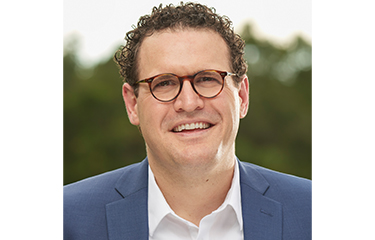Op-ed: Time to call out RFMO secrecy

Ryan Orgera is the global director of Accountability.Fish, a U.S.-based non-governmental organization founded in 2022 to spur operational change in regional fisheries management organizations.
Imagine if the future of the planet was being decided by a small group of bureaucrats and mining bosses in closed meetings in far-flung parts of the world.
Rather than looking at the overall impacts, these meetings only looked at things from one perspective – making sure that the mining companies could increase their takings – and ignoring other consequences, be they environmental, social or economic.
If that were the case, wouldn’t you think there would be an outcry, massive protests, and pressure on the governments employing the bureaucrats to at least open the meetings to public view?
Well, in terms of the oceans, that actually is the case.
Indeed, the future of the world’s oceans – and their ability to mitigate some of the worst effects of the climate crisis – is actually under the substantial control of 17 highly obscure international decision-making bodies called “regional fisheries management organizations" (RFMOs). These bodies are highly influenced by the industrial fishing industry.
At first glance, it looks like the United Nations is planning to take care of this governance problem in its coming High Seas Treaty – the outline of which was agreed this month, but which has yet to be codified and faces a ratification and implementation process that could take years.
Up until the treaty is fully implemented, the primary international bodies with actual jurisdiction over ocean resources management are the RFMOs, and their performance has been often abysmal from a conservation perspective.
For the most part, the RFMOs work closely with industrial fishing interests, and often actively discourage or place obstacles in the way of participation of NGOs, labor unions, conservation groups and the media from participating in, or even observing their proceedings.
One example, among the most important of these meetings, is that of the compliance committee of the RFMO that governs a full 56 percent of the world’s tuna production, covering the Western Pacific Ocean. Its meetings are held behind closed doors with no non-industry observers.
Another meeting, that of the RFMO covering Atlantic tunas, recently took place at an isolated golf hotel in Portugal almost three hours’ driving distance from the country’s main airport in Lisbon.
This is not just an issue of back-room decision making. It’s actually indicative of two much larger problems.
The first is that the world’s oceans lack a dedicated, responsible, accountable, and holistic approach to management, with the primary decision-making bodies charged with their welfare largely in hock to one highly extractive and short-sighted industry.
The second, and the most damning, is that the world’s democracies – the U.S., the E.U., and countries like Canada, Japan, Australia and New Zealand, are active participants in the RFMO status quo – even though similar secrecy would be absolutely abhorrent in their own societies and would fall under intense press and citizen opposition if it ever became known.
Based on 1950s-era views about international cooperation and governance, the outdated and inward-looking outlook of RFMOs has led to massive overfishing of certain species, at times; reluctant and half-hearted acceptance of non-binding agreements to address overfishing; and ongoing refusal to establish the marine protected areas that the new U.N. treaty will finally aim to establish – if the RFMOs actually cooperate.
While the UN treaty is an important long-term step, opening up the RFMO process becomes increasingly urgent to avert catastrophic decisions being made in secrecy before the treaty takes hold. Shedding some light on the destructive deliberations that take place – and calling out institutional actors who allow this process to continue their business as usual – isn’t just a good idea. It’s something that needs to start happening now.
Photo courtesy of Sanibel-Captiva Conservation Foundation





Share